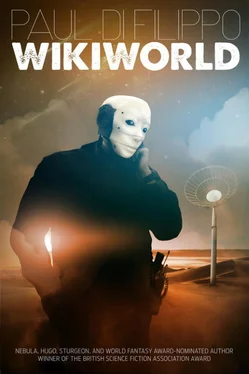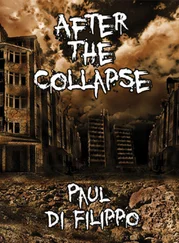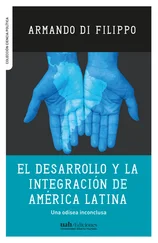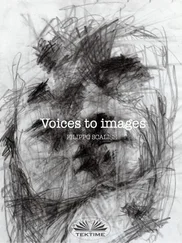Paul Di Filippo - WikiWorld
Здесь есть возможность читать онлайн «Paul Di Filippo - WikiWorld» весь текст электронной книги совершенно бесплатно (целиком полную версию без сокращений). В некоторых случаях можно слушать аудио, скачать через торрент в формате fb2 и присутствует краткое содержание. Город: Toronto, Год выпуска: 2013, ISBN: 2013, Издательство: ChiZine Publications, Жанр: Фантастика и фэнтези, на английском языке. Описание произведения, (предисловие) а так же отзывы посетителей доступны на портале библиотеки ЛибКат.
- Название:WikiWorld
- Автор:
- Издательство:ChiZine Publications
- Жанр:
- Год:2013
- Город:Toronto
- ISBN:978-1771481557
- Рейтинг книги:4 / 5. Голосов: 1
-
Избранное:Добавить в избранное
- Отзывы:
-
Ваша оценка:
- 80
- 1
- 2
- 3
- 4
- 5
WikiWorld: краткое содержание, описание и аннотация
Предлагаем к чтению аннотацию, описание, краткое содержание или предисловие (зависит от того, что написал сам автор книги «WikiWorld»). Если вы не нашли необходимую информацию о книге — напишите в комментариях, мы постараемся отыскать её.
WikiWorld — читать онлайн бесплатно полную книгу (весь текст) целиком
Ниже представлен текст книги, разбитый по страницам. Система сохранения места последней прочитанной страницы, позволяет с удобством читать онлайн бесплатно книгу «WikiWorld», без необходимости каждый раз заново искать на чём Вы остановились. Поставьте закладку, и сможете в любой момент перейти на страницу, на которой закончили чтение.
Интервал:
Закладка:
PJ stood up determinedly, a certain savagery burning in her expression. I was reminded immediately of Samantha Eggar playing Clarrissa MacDougall in 1959’s Children of the Lens . I found my initial attraction to her redoubling. I hadn’t felt like this since I fell in love with Diana Rigg (playing opposite Peter Cushing) when I first saw her onscreen in Phantom Lady Versus the Red Skull when I was fifteen.
PJ’s voice was quavering but stern. “I can see that you’re not the man for this job, Max. I’ll be going now—”
I reached out to stop her. I couldn’t let her leave.
“No, wait, I’ll take the case. If only to put your mind at ease—”
“It’s not me I’m concerned about. I want you to find the people who killed my father!”
“If that’s where the trail leads, I promise I’ll run them down.”
A thought suddenly occurred to me. “How’s your mother figure in all this? Mrs. Hornbine. What’s she got to say about your father’s death?”
PJ softened. “Mom isn’t with us anymore. She died five years ago, on the way home from Venus Equilateral.”
I whistled. “Your Mom was Jenny Milano?”
PJ nodded.
Now I could see where PJ got her spunk.
Jenny Milano had managed to nurse the leaky reactor of her crippled spaceship, the GDM Big Otaku , for thousands of miles until she finally achieved Earth orbit and spared the planet from a deadly accidental nuclear strike. Today her ship currently circled the planet as a radioactive memorial to her courage and skills.
According to PJ, Dr. Hornbine hadn’t been conducting any independent research prior to his demise. And he didn’t see any private patients outside the clinical environment. Therefore, whatever scandal he had uncovered had to originate at David H. Keller Memorial itself. At first, I assumed that to learn anything I’d have to go undercover at the hospital. But how? I certainly couldn’t masquerade as a doctor. Even if I managed to get some kind of lowly orderly job, I’d hardly be in any position to poke around in odd corners, or solicit information from leet personnel.
So I abandoned that instinctive first approach and decided to go in for a little social engineering.
I’d try to infiltrate one of Dr. Hornbine’s karasses. Maybe amongst those who shared his sinookas, I’d learn something he had let slip, a clue to whatever secret nasty stuff was going on at the hospital.
Assuming the beautiful PJ Hornbine wasn’t as loony as Daffy Duck.
Hopping onto the a-net, I quickly learned what constituted the Doc’s passions.
He had been a member of the Barbershop Harmony Society.
No way I could join that, since I could carry a tune about as well as Garfield.
The Doc had also belonged to the Toonerville Folks, a society dedicated to riding every municipal trolley line in North, Central and South America, a life-quest which few members actually managed to achieve, given the huge number of such lines. (The old joke about the kid who parlayed a single five-cent transfer for a ride from Halifax to Tierra del Fuego, arriving an old man, came readily to mind.)
But this karass mainly encouraged solitary activity, save for its annual national conventions. No good to me.
Pop Hornbine also collected antique Meccano sets.
Again, that wasn’t going to put me into social situations where I could pump people for dirt.
But at last I hit gold, like Flash discovering Earth-Two.
Harold Hornbine was also known as Balkpraetore, common footpad and strangler.
The Centropolis sept of the Children of Cimmeria called itself the Pigeons from Hell. That was Balkpraetore’s crowd. Every weekend they had a melee with other regional groups. These were the tight friends with whom Hornbine would have shared thoughts on what had been troubling him, even if he hadn’t ventured into full disclosure.
This group I could infiltrate. No reason I had to assume warrior guise. I could go as a bard or mage or tavern-keeper.
Today was Thursday. That gave me plenty of time to prepare.
So that sunny Saturday morning found me riding the Roger Lapin trolley line out to the Frank Reade Playing Fields, several hundred acres in the heart of Centropolis devoted to cosplay, recreations, re-enactments, live RPG and other pursuits of that nature. I was dressed like a priest who might have been Thulsa Doom’s wimpy mouse-worshipping cousin. I figured nobody would want to waste a sword-stroke on me. I didn’t stick out particularly amongst my fellow passengers, as half of them were attired in similar outfits. And besides, most were busy reading books or zines or pictonovels, or watching movies and cartoons on their pocket-solido sets.
After I boarded at the Dunsany Towers stop, a little nervous at carrying out this imposture, I dug out that issue of Global Heritage that I had been reading when PJ first showed up.
Once in the Oval Office, President Hearst quickly assembled an official cabinet—and a semi-secret cabal of assistants and advisors—who could help him carry out his radical disarmament and re-education program. The list leaned heavily towards scientists and reformers and what passed for media people in those days, deliberately excluding the tired old politicians. Hearst hired Havelock Ellis and Thomas Edison. Mrs. Frank Leslie and Nikola Tesla. Edward Stratemeyer and Margaret Sanger. Frank Munsey and Percival Lowell. Lee de Forest and even old rival Joseph Pulitzer.
(Cabinets during Hearst’s subsequent six terms as President would include a new generation of younger luminaries such as Buckminster Fuller, Huck Gernsback, Major Malcolm Wheeler-Nicholson, Robert Goddard, B. F. Skinner, Thomas Merton, Vannevar Bush, David Ogilvy, Marshall McLuhan, Claude Shannon, Dorothy Day and A. A. Wyn. Service in the Hearst administration became a badge of honour, and produced a catalogue of America’s greatest names.)
These men and women set about dismantling the cultural foundations of belligerence, both domestic and international, substituting a philosophy of intellectual passions, encouraged by education and new laws.
And one of their prime weapons in this initially subliminal war was the same yellow journalism that had once fomented violence.
Specifically, the Funnypaper Boys.
Hearst wanted to reach the largest percentage of the population with his message of reform. But there was no radio then, no spy-rays or ansible-net or ether-vision or movies. Mass media as we know it today, in 1975, was rudimentary, save for zines and newspapers.
And most importantly, the newspaper comics.
The funny pages. Already immensely popular, comprehensible even by the nation’s many semi-literate citizens, able to deliver concealed subtextual messages behind entertaining facades.
Thus were born the Funnypaper Boys, artists who were really secret agents for Hearst’s program.
Outcault, Herriman, Dirks, McManus, McCay, King, Opper, Schultze, Fisher, Swinnerton, Kahle, Briggs, and a dozen others. They were motivated by Hearst’s grandiose humanistic dreams to create a Golden Age of activist art, full of humourous fantastical conceits.
No one could deny the power and influence of such other eventual Hearst allies as pulpzines and Hollywood. But the Funnypaper Boys were first, the Founding Fathers of a republic soon informally dubbed Geektopia. (“Geek” became the in-term for the fanatics who followed the Funnypaper Boys due to Winsor McCay’s association with carnival culture, where the word had a rather different meaning.) Their utopian artwork swept the nation—and the globe. American comics proved to be potent exports, with or without translation, and were adopted wholeheartedly by other cultures, carrying their reformist messages intact and sparking similar native movements.
Читать дальшеИнтервал:
Закладка:
Похожие книги на «WikiWorld»
Представляем Вашему вниманию похожие книги на «WikiWorld» списком для выбора. Мы отобрали схожую по названию и смыслу литературу в надежде предоставить читателям больше вариантов отыскать новые, интересные, ещё непрочитанные произведения.
Обсуждение, отзывы о книге «WikiWorld» и просто собственные мнения читателей. Оставьте ваши комментарии, напишите, что Вы думаете о произведении, его смысле или главных героях. Укажите что конкретно понравилось, а что нет, и почему Вы так считаете.










